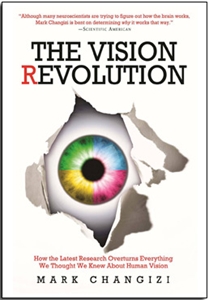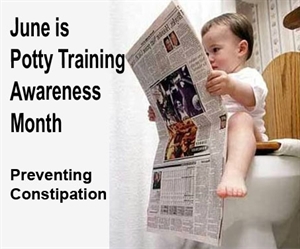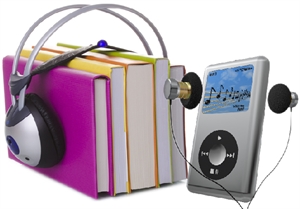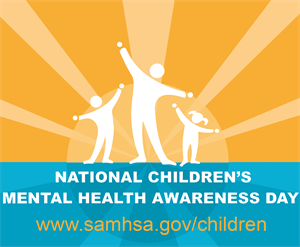Child Vision Awareness Month on June, 2025: What is each month for Awareness Month?
June, 2025 is Child Vision Awareness Month 2025. National Children's Vision & Learning Awareness Month copy National Children's Vision
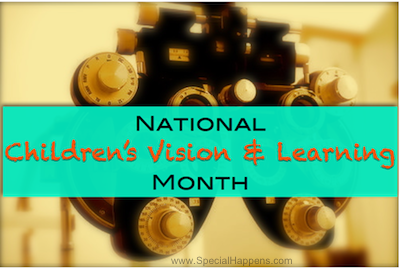
January:
Birth Defects Prevention Month
Cataract Awareness Month
Cervical Cancer Awareness Month
Family Fit Lifestyle Month
Financial Wellness Month
Glaucoma Awareness Month
Healthy Weight Awareness Month
February:
African-American History Month
Children’s Dental Health Month
Ethnic Equality Month
Heart Month
March:
Colorectal Cancer Awareness Month
Gender Equality Month
Kidney Month
Mental Retardation Awareness Month
Multiple Sclerosis Awareness Month
Nutrition Month
Red Cross Month
April:
Alcohol Awareness Month
Autism Awareness Month
Cancer Control Month
Child Abuse Prevention Month
Keep America Beautiful Month
Mathematics Education Month
Month Of The Young Child
Poetry Month
STDs Education And Awareness Month
Stress Awareness Month
World Habitat Awareness Month
Personal Self-Defense Awareness Month
Poverty In America Awareness Month
Thyroid Awareness Month
May:
Better Hearing And Speech Month
Better Sleep Month
Correct Posture Month
Creative Beginnings Month
Family Support Month
Hepatitis Awareness Month
High Blood Pressure Awareness Month
Mental Health Month
Teen Pregnancy Prevention Month
Older Americans Month
Osteoporosis Prevention Month
Personal History Awareness Month
Stroke Awareness Month
June:
Aphasia Awareness Month
Children’s Awareness Month
Gay And Lesbian Pride Month
International Men’s Month
Myasthenia Gravis Awareness Month
People Skills Month
Rebuild Your Life Month
Rivers Month
Scleroderma Awareness Month
Student Safety Month
Vision Research Month
July:
Eye Injury Prevention Month
Group B Strep Awareness Month
Purposeful Parenting Month
Recreation And Parks Month
August:
Amblopia Awareness Month
Immunization Awareness Month
Psoriasis Awareness Month
Spinal Muscular Atrophy Awareness Month
September:
Gynecological Cancer Awareness Month
Menopause Awareness Month
Organic Harvest Month
Pediculosis Prevention Month
Prostate Cancer Awareness Month
Self-Awareness Month
Self-Improvement Month
Sickle Cell Awareness Month
October:
Adopt A Shelter Dog Mont
AIDS Awareness Month
Breast Cancer Awareness
Campaign For Healthier Babies Month
Dental Hygiene Awareness Month
Domestic Violence Prevention Month
Down Syndrome Awareness Month
Lupus Awareness Month
Vegetarian Awareness Month
November:
Alzheimer’s Awareness Month
Adoption Awareness Month
Diabetes Awareness Month
Family Caregivers Month
Impotency Awareness Month
Lung Cancer Awareness Month
Pancreatic Cancer Awareness Month
Runaway Prevention Month
Pro-Life Month
December:
Safe Toys & Gifts Awareness Month

Is there a certain awareness cause every month?
January:
Birth Defects Prevention Month
Cataract Awareness Month
Cervical Cancer Awareness Month
Family Fit Lifestyle Month
Financial Wellness Month
Glaucoma Awareness Month
Healthy Weight Awareness Month
February:
African-American History Month
Children’s Dental Health Month
Ethnic Equality Month
Heart Month
March:
Colorectal Cancer Awareness Month
Gender Equality Month
Kidney Month
Mental Retardation Awareness Month
Multiple Sclerosis Awareness Month
Nutrition Month
Red Cross Month
April:
Alcohol Awareness Month
Autism Awareness Month
Cancer Control Month
Child Abuse Prevention Month
Keep America Beautiful Month
Mathematics Education Month
Month Of The Young Child
Poetry Month
STDs Education And Awareness Month
Stress Awareness Month
World Habitat Awareness Month
Personal Self-Defense Awareness Month
Poverty In America Awareness Month
Thyroid Awareness Month
May:
Better Hearing And Speech Month
Better Sleep Month
Correct Posture Month
Creative Beginnings Month
Family Support Month
Hepatitis Awareness Month
High Blood Pressure Awareness Month
Mental Health Month
Teen Pregnancy Prevention Month
Older Americans Month
Osteoporosis Prevention Month
Personal History Awareness Month
Stroke Awareness Month
June:
Aphasia Awareness Month
Children’s Awareness Month
Gay And Lesbian Pride Month
International Men’s Month
Myasthenia Gravis Awareness Month
People Skills Month
Rebuild Your Life Month
Rivers Month
Scleroderma Awareness Month
Student Safety Month
Vision Research Month
July:
Eye Injury Prevention Month
Group B Strep Awareness Month
Purposeful Parenting Month
Recreation And Parks Month
August:
Amblopia Awareness Month
Immunization Awareness Month
Psoriasis Awareness Month
Spinal Muscular Atrophy Awareness Month
September:
Gynecological Cancer Awareness Month
Menopause Awareness Month
Organic Harvest Month
Pediculosis Prevention Month
Prostate Cancer Awareness Month
Self-Awareness Month
Self-Improvement Month
Sickle Cell Awareness Month
October:
Adopt A Shelter Dog Mont
AIDS Awareness Month
Breast Cancer Awareness
Campaign For Healthier Babies Month
Dental Hygiene Awareness Month
Domestic Violence Prevention Month
Down Syndrome Awareness Month
Lupus Awareness Month
Vegetarian Awareness Month
November:
Alzheimer’s Awareness Month
Adoption Awareness Month
Diabetes Awareness Month
Family Caregivers Month
Impotency Awareness Month
Lung Cancer Awareness Month
Pancreatic Cancer Awareness Month
Runaway Prevention Month
Pro-Life Month
December:
Safe Toys & Gifts Awareness Month
what should my 8 month old son be doing?
Here is some good info
Corrected age is the infant's or child's chronological age minus the amount of weeks or months he or she was born early. For example, if your 1-year-old was born 3 months early, you can expect him or her to look and act like a 9-month-old (corrected age). You may find this figure to be most reassuring when following your child's growth and development for the first 2 years after birth.
So your 8 month old should be developing like a 5 month old
During your child's first 2 years of life, he or she will appear to be developmentally behind full-term children of the same age. But you can expect your infant and young child to achieve the same sequence of developmental milestones as any other child
So according to the site above he should be doing the following
* Weight: average gain of 1 to 1 1/4 pounds each month; by 6 months has doubled birthweight
* Height: average growth of 1/2 to 1 inch each month
* Head size: average growth of about 1/2 inch each month
What can my baby do at this age?
This age is very social and babies begin moving in much more purposeful ways. While babies may progress at different rates, the following are some of the common milestones your baby may reach in this age group:
* grasp, Moro, root, and tonic neck reflexes (reflexes normally present in young infants) disappear
* balances head well
* sits with support, back is rounded
* begins to support body with legs when held in standing position
* rolls from back to front and front to back by 6 months
* moves object from one hand to other
* grabs feet and toes when lying on back
* makes "swimming" motions with arms and legs when placed on abdomen
* begins drooling (not always a sign of teething)
* naps two to three times a day, for one to three hours each (on average)
* begins to sleep longer at night (six to eight hours consistently)
* has full color vision, able to see at longer distances
What can my baby say?
It is very exciting for parents to watch their babies become social beings that can interact with others. While every baby develops speech at his/her own rate, the following are some of the common milestones in this age group:
* coos and gurgles when talked to, or in response to toys
* babbles, imitates sounds
* by 6 months, makes single syllable sounds (da, ma, ba)
* laughs
* squeals
* blows bubbles or "raspberries"
What does my baby understand?
A baby's awareness of people and surroundings increases during this time and he/she may begin to interact with persons other than parents. While babies may progress at different rates, the following are some of the common milestones in this age group:
* recognizes familiar things and people
* may hold out arms to be picked up
* begins to learn concept of object permanence (i.e., a partially hidden object under a blanket is still there)
* may show displeasure when object or person goes away
* may recognize his/her own name
* may begin to understand "no"
* begins to understand cause and effect (the sound a toy makes when it is dropped)
How to help increase your baby's development and emotional security:
Consider the following as ways to foster the emotional security of your baby:
* Repeat sounds and smile when your baby makes sounds.
* Laugh with your baby.
* Talk to and imitate your baby during feeding, dressing, changing diapers, and bath time.
* Spend time on the floor playing with your child every day.
* Dance with your baby and do other rhythmic movements.
* Introduce your baby to other children and parents.
* Place safe toys near your baby to encourage reaching and grasping.
* Encourage laughing and play by making funny faces or sounds or blowing on baby's belly and laughing.
* Play peek-a-boo games to help develop object permanence, the understanding that objects are still present even though they cannot be seen.
* Show your baby bright picture books and interesting objects.
* Show your baby his/her reflection in a mirror.
* Read books and stories to your baby, and point out pictures.
* Take your baby outside to see new things and people.
* Hold your baby for feedings and cuddle when he/she is awake.
* Hold and comfort your baby when he/she is unhappy.




